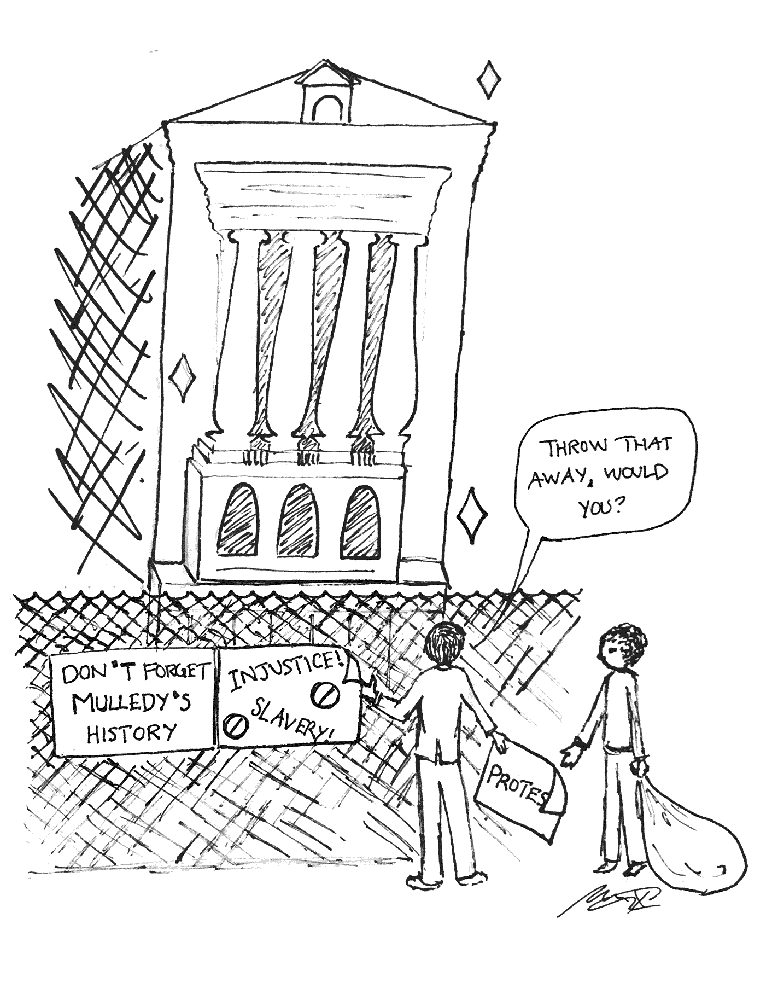 The university’s decision to retain the name of Mulledy Hall, one of two buildings that constitute the new Spirit of Georgetown Residential Academy, is both tone-deaf and offensive.
The university’s decision to retain the name of Mulledy Hall, one of two buildings that constitute the new Spirit of Georgetown Residential Academy, is both tone-deaf and offensive.
Although University President John J. DeGioia’s statement to the university community on Aug. 24 contends that the university executes this choice with full understanding of the dark blot of Jesuit slaveholding history and encourages reflection on this past, this argument stands on a weak foundation.
The shameful history of Jesuit slaveholding on Georgetown’s campus was brought to an end by a decision grounded in economic reality — 272 decisions, to be exact.
Fr. Thomas Mulledy, S.J., the university president from 1829 to 1838 and 1845 to 1848, compelled by a combination of the threat of Northern abolitionism in the 19th century and the rising cost of maintaining indentured labor, sold Georgetown University’s 272 slaves south Nov. 28, 1838. Despite the university’s professed commitment to social justice, the sale tore multiple families apart. Mulledy also consciously made the decision to sell human beings to the agriculture-dependent South, where the institution of slavery enjoyed firm de jure and de facto entrenchment.
While the university intends to hold conversations to grapple with its history with slavery, ultimately, these discussions will recede and future rounds of students and tourists will simply see Mulledy Hall as a memorial to someone worthy of veneration. The truth, however, is that Mulledy — a man in a position of significant power — lacked the moral courage to advocate for what was truly just, thereby undermining the very values Georgetown constantly extolls.
Given the history and present of this nation’s race relations, preserving the name of Mulledy Hall is particularly confounding. The United States faces a troubling trend of escalating racial tension, with police brutality and hate crimes serving as powerful reminders that the question of race has not been settled. Indeed, following a series of recent conflicts between law enforcement and black Americans, Director of the FBI James Comey addressed the disparities in law enforcement concerning minorities for the first time in Gaston Hall.
In light of this climate, Georgetown must pay heed to the message it sends by continuing to enshrine a man who enabled the detestable institution of slavery.



















